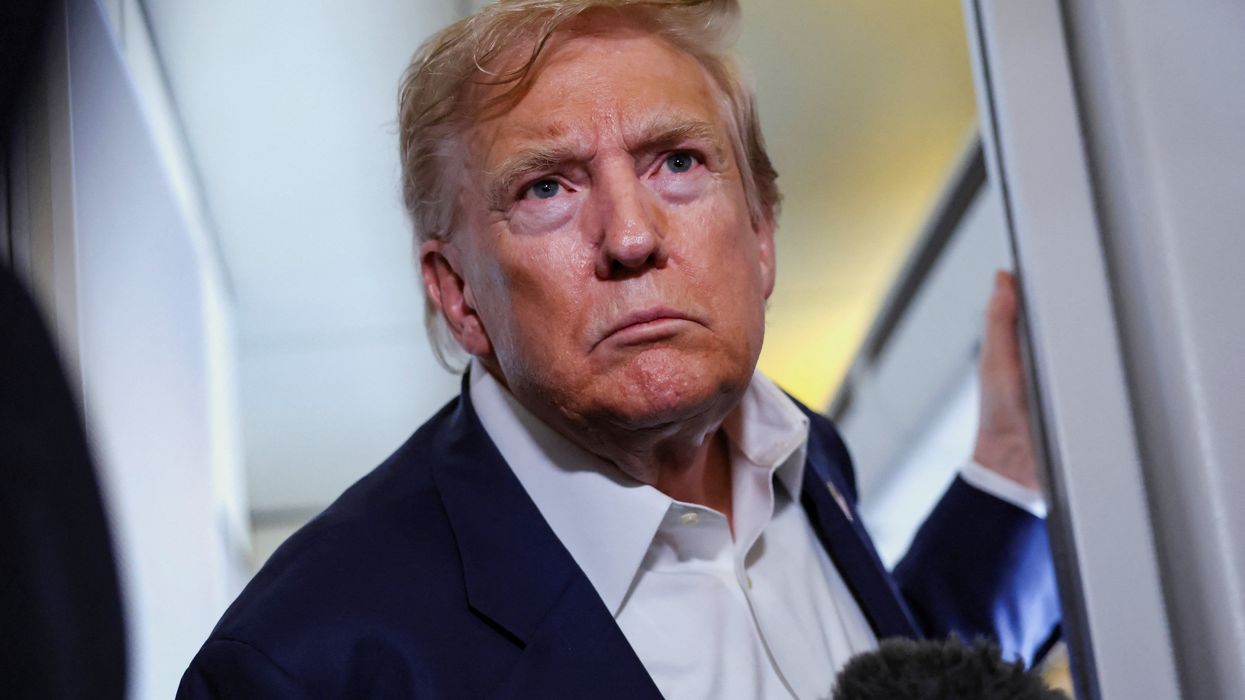A federal judge on Thursday temporarily blocked Thursday President Donald Trump’s plan to send National Guard troops into Illinois, finding that the administration lacks legal grounds to do so.
The Chicago Sun-Times reported that U.S. District Judge April Perry halted the federalization and deployment of National Guard forces in and around Chicago, concluding that the administration’s claims of a so‑called rebellion in Illinois were unsupported. In court she declared: “I have seen no credible evidence that there is danger of rebellion in the state of Illinois.”
She questioned the credibility of the Trump administration’s narrative around protests in Chicago, saying it did not rise to the level of insurrection warranted under the law. The judge also noted that recent court rulings and grand jury decisions undercut the Department of Homeland Security’s justification. She said that rather than easing tensions, a military presence could inflame unrest.
The dispute stems from recent moves by the Trump administration to federalize the Illinois National Guard and bring in troops from Texas (and other states) to assist with enforcement operations in Chicago. The administration argues the troops are necessary to protect federal property and immigration agents amid protests.
Oklahoma Gov. Kevin Stitt (R) criticized the deployment, saying that sending National Guard troops from one state into another without the receiving state’s consent violates states’ rights.
He told the New York Times that Oklahomans “would lose their mind” if Illinois sent troops into Oklahoma during a Democratic administration, drawing a hypothetical parity.
Illinois and the city of Chicago filed suit, asserting that the deployment was based on false premises and represented an overreach of federal power. In their filing, Illinois stated that Trump’s memo “seeks to strong arm” Governor J.B. Pritzker (D) into consenting to a federally funded operation under Title 32, in violation of states’ rights under the Tenth Amendment.
Pritzker and Chicago leaders have warned that the actions amount to a creeping military occupation of Democratic‑led cities.
Meanwhile, Defense Secretary Pete Hegseth had issued memos stating that Trump had called up 300 Illinois National Guard troops for a 60‑day federal mission, and simultaneously activated 400 Texas Guard soldiers to be used “beyond the state of Texas, including in … Chicago.”
Those memos invoke 10 U.S.C. 12406, a statute traditionally reserved for foreign invasion, rebellion, or failure to enforce federal law.
Pritzker reacted to the order and wrote on the social platform X: "Donald Trump is not a king — and his administration is not above the law. Today, the court confirmed what we all know: there is no credible evidence of a rebellion in the state of Illinois. And no place for the National Guard in the streets of American cities like Chicago."
Legal analyst Ryan Goodman wrote on the social platform X: "Notable points in Judge Perry's remarks in Illinois v Trump National Guard case 1. Deployment of National Guard not quelling civil unrest. Instead, it's 'likely to lead to civil unrest.' 2. State and local community policing not well geared for out of state Guards."
John Jackson, a U.S. veteran of the Ukrainian Armed Forces, reacted to the development and wrote on X: "Fantastic news. Federal judge blocks Trump's deployment of federalized National Guard troops until the preliminary injunction hearing. 14 days. The legal standards for both a TRO and PI are very similar. Chicago will probably win the PI as well."
Paul Rieckhoff, a veteran, said in an X post: "Good. Good for Illinois, for our troops and for America."


